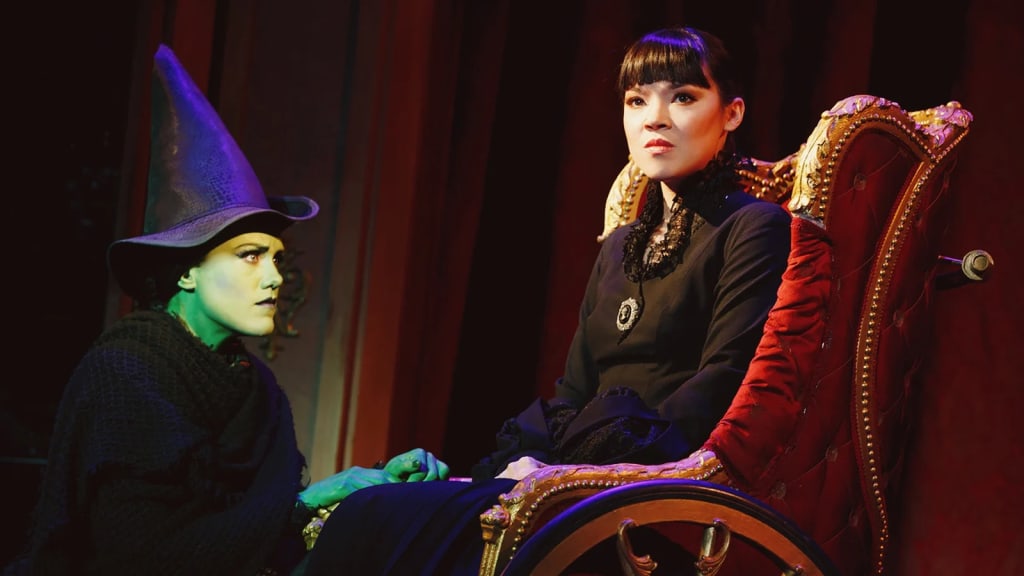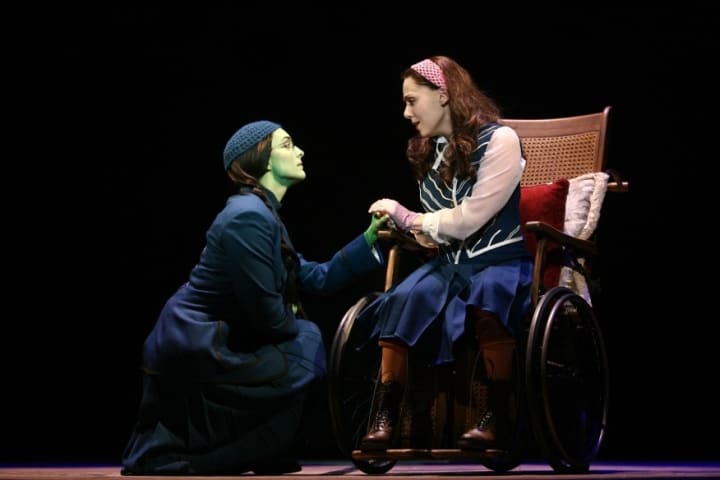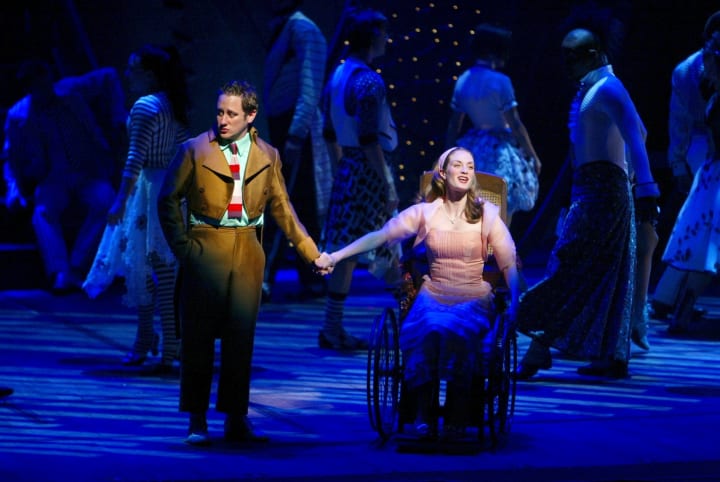
For many people, The Wizard of Oz was a milestone of cinema and a familiar watch from their childhood. At the same time, we all know how Dorothy landed in Oz and made her way up the Yellow Brick Road. Many gloss over how her house crushed the Wicked Witch of the East, sending her green sister on a quest for revenge and a pair of ruby slippers.
The character was expanded upon in Gregory Maguire's 1995 novel Wicked: The Life and Times of the Wicked Witch of the West and its Broadway and West End adaptation. Before she becomes the infamous Wicked Witch of the East, Nessarose Thropp is the younger sister of Elphaba and was born with a disability. This portrayal of disability in literature and theatre, which is not without its controversies, is a significant step towards more diverse and inclusive narratives.

Her disability varies depending upon whether you read the book or watch the stage version, but her storyline ultimately leads to a villain’s arc. I, as a disabled writer, have seen several disabled influencers remark that Nessarose’s character arc in the musical is ableism, and I must admit I disagree with this interpretation. I wanted to add my voice to the conversation, and I believe the Thropp sisters are intended to be parallels to each other.
Despite being born with her disability, Nessarose does have internalised ableism. In the stage adaptation, this could be seen as being influenced by her father. From the way he treats his eldest daughter due to her skin colour, he showers his youngest with gifts and adoration from a place of guilt. This internal struggle adds depth to her character and invites the audience to empathize with her.

The premature birth in the show sees Nessarose as a wheelchair user for most of the musical. Nessarose is a character who is desperate for love, whereas Elphaba believes she is unlovable. Nessarose's disability is not just a simple cause-and-effect relationship with her life’s problems and Boq’s inability to love her. It's a complex interplay of various factors that make her character more nuanced and realistic.
Nessarose is not a representation of disability, but beauty is what is on the inside, not the outside. Yes, her character is disabled, but that’s not the point of her storyline. While Elphaba strives to protect those in need and finds love unexpectedly, Nessarose’s need for affection turns to a need for control. Boq is evidently in love with someone else, but Nessarose believes that his disinterest is due to her wheelchair and pity. Rather than realising her self-worth, her vanity makes her think she could force Boq to fall in love with her in two distinctive ways. It’s also important to note that none of the characters are ableist towards or about this character in the show, highlighting Nessarose’s insecurities and paranoia are of her own making.

Act II, Scene 2 of the musical Wicked: The Untold Story of the Witches of Oz features “The Wicked Witch of the East” sung by Elphaba, Boq, and Nessarose. Elphaba casts a spell to help Nessarose walk, which prompts Boq to confess his love for Glinda and leave Nessarose. However, Nessarose doesn't take it well and casts a spell to make Boq love her instead, but she gets the spell wrong and Boq loses almost all of his heart. Feeling guilty, Nessarose declares herself the Wicked Witch of the East. Elphaba then turns Boq into the Tin Man and declares that he won't need his heart anymore.
In this scene, the truth about the sisters becomes apparent to both. Nessarose, although physically attractive, has an unattractive personality. On the other hand, Elphaba is physically unattractive but has a beautiful personality. Nessarose's tragedy is not her disability but her lack of self-love which ultimately transformed her into a spiteful tyrant. After her death, no one in Oz mourned for her, except those who truly knew her.

The show's writers have created a character who takes a downward spiral, leading the audience to empathize with her past self and lament her potential future. Nessarose's desperate and hopeless bid for affection from someone who doesn't reciprocate her feelings causes her to not only become a villain but also ruins her relationship with the only person who truly loved her for who she was.
The idea that a character who is disabled cannot be written as an antagonist without it being seen as ableism is a flawed argument. It comes down to the writer’s ability to craft a three-dimensional character who has clear motives and reasons for their actions. Nessarose is driven by a need to be loved, but her inability to reach it has nothing to do with her wheels or ruby slippers. An actor’s ability to humanise a character on stage and screen also adds to the nuance of a villain’s story, which is why so many phenomenal actresses have played this part on stages across the world.

Disabled representation in the media needs improvement. Wicked's portrayal, however, is not negative or cliché, in my opinion. The casting team made an effort to be inclusive by actively searching for a disabled actress and cast Marissa Bode in Jon M. Chu's two-part feature film adaptation, making Bode the first disabled actress to play Nessarose.
When you watch Wicked in November, remember that Nessarose is a complex character beyond her wheelchair and I have no doubt that Bod's performance will showcase that.






Comments (1)
This was a great read Ted! I’m a huge fan of Wicked, and hadn’t given Nessarose much thought compared to Glinda and Elphaba if I’m honest, but you make some excellent points here. I agree that she does spiral downward, and that her need for love leads to her trying to control Boq. I do think Boq should have been honest at the moment when he lies to Nessarose in the Ozdust Ballroom, but he panics and doesn’t want to hurt her feelings. You go from sympathising with her for most of the play to condemning what she does to Boq, and it’s tragic to see her realise what she’s done. Looking forward to seeing how it all comes out on the big screen!